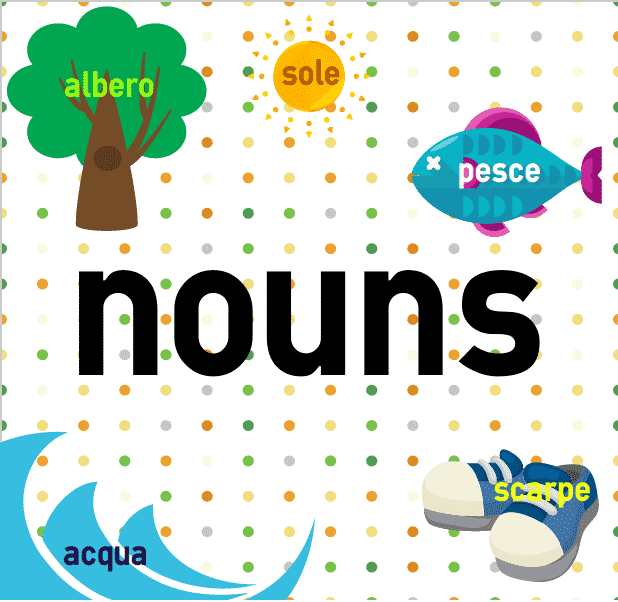 Our purpose today is to explain the Italian Nouns Terminations, so that you will be able to use them more easily. You will find a video about that and a general descriptive introduction.
Our purpose today is to explain the Italian Nouns Terminations, so that you will be able to use them more easily. You will find a video about that and a general descriptive introduction.
Italian Nouns Terminations
***
Foreigner Nouns in Italian
All the Italian nouns end with a vowel unless they are foreigner nouns. In this case they don’t follow the Italian Grammar rules and for example they don’t change their termination with the plural. Here you find some examples:
– il computer / i computer
– il file / i file
– il weekend / i weekend
– l’autobus / gli autobus
– lo yogurt / gli yogurt.
We use many foreigner terms in our language and often we wonder if this is good or not. Here you can find a large list of foreigner terms and their equivalent in Italian. Why don’t we use them? Or why don’t we modify them using words that recall the Italian? There’s a big debate about that.
Here you find a really interesting conference about that topic:
***
Italian Nouns Terminations
By the way our purpose today is to speak about the Italian nouns terminations. All the Italian nouns end with a vowel and a specific function corresponds to each termination as follows:
A
This termination expresses almost always the fact that the noun is FEMININE and SINGULAR. Examples: LA CASA, LA FAMIGLIA, LA SCUOLA. In order to pluralise it you must substitute the A with the E. For example LE CASE, LE FAMIGLIE, LE SCUOLE.
E
The vowel E is used by masculine and feminine singular nouns. It means that you can find masculine singular nouns ending in E, and feminine singular nouns ending in E.
This are some examples: IL RISTORANTE, IL DOTTORE (masculine nouns) and LA COLAZIONE, LA STAGIONE (feminine nouns). In order to now more about that nouns, watch the video here above.
What is important to know is that in both the cases, the plural ends with the letter I. Examples: I RISTORANTI, I DOTTORI, LE COLAZIONI, LE STAGIONI.
I
Also this termination is used for masculine and feminine nouns but the interesting is that you cannot pluralise it with a different ending. Examples: LA CRISI, L’ANALISI (feminine singular), LE CRISI, LE ANALISI (feminine plural), IL LUNEDI’, IL MARTEDI’ (masculine singular), I LUNEDI’, I MARTEDI’ (masculine plural).
O
The vowel O expresses almost always the fact that the noun is MASCULINE and SINGULAR. Examples: IL TAVOLO, IL BAMBINO, IL CIBO. In order to pluralise it you must substitute the O with the I. For example IL TAVOLI, IL BAMBINI, IL CIBI.
U
The vowel U it is used for masculine and feminine nouns and, like the letter I don’t change with the plural. Examples: LA TRIBU’, LA GIOVENTU’ (feminine singular), LE TRIBU’, LE GIOVENTU’ (feminine plural), IL TABU’ (masculine singular), I TABU’ (masculine plural).
***
Italian Nouns Terminations when the Noun has the Accent
Finally we would like to address your attention on those nouns that end with a VOWEL and with an accent on the last letter. They don’t change with the plural. See that:
(one) UNA CITTA’ / MOLTE CITTA’ (many)
(one) UN CAFFE’ / MOLTI CAFFE’ (many)
(one) UN LUNEDI’ / MOLTI LUNEDI’ (many)
(one) UN FALO’ / MOLTI FALO’ (many)
(one) UNA TRIBU’ / MOLTE TRIBU’ (many)
***
Italian Nouns Terminations
Also, this post is part of a Full Italian Course for beginners available here: Italian Video Course for Beginners.
***
Learn Italian with ITALIAN VIRTUAL SCHOOL
and take a
FREE Trial Class!

You must be logged in to post a comment.